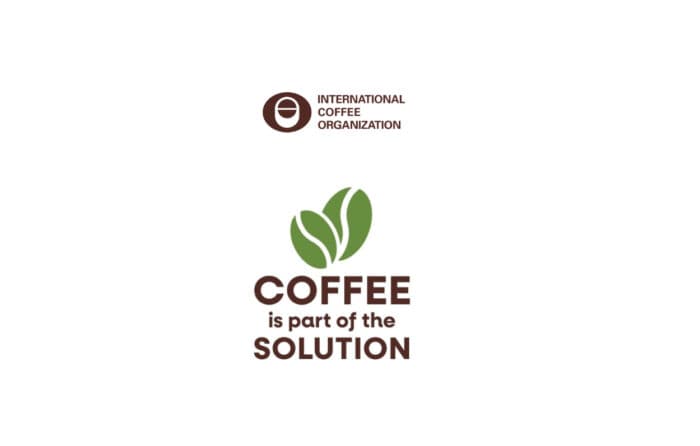Dubai – Qahwa World
The “Future of Trade 2024: Decoupled and Reconfigured” report released by the Dubai Multi Commodities Centre (DMCC) offers a forward-looking view of how global trade is transforming amid economic, environmental, and technological change.
Although coffee trade is not discussed in detail, the report’s three defining forces — regionalisation, digitalisation, and sustainability — have direct implications for the global coffee industry and its complex supply chain stretching from farms to roasters.
Regionalisation and the Reconfiguration of Supply Chains
The report forecasts that global trade will rebound moderately, growing by 2.6% in 2024 and 3.3% in 2025, after contracting by 1.2% in 2023.
This recovery, however, comes with an important shift: the world is moving toward regionalised trade blocs and “friend-shoring,” in which supply chains are relocated closer to politically aligned or geographically proximate partners.
In the coffee sector, this means supply routes and logistics networks are being redrawn. Neutral hubs such as Dubai are expected to gain importance as aggregation and re-export centres for coffee shipments heading to Europe, Asia, and Africa.
With the total value of global merchandise trade reaching US$31 trillion in 2023, competition among trading hubs to attract high-value commodities, including coffee, is intensifying.
Sustainability: From Compliance to Market Advantage
The DMCC report highlights the rapid rise of climate policy as a trade determinant, particularly with the introduction of the EU Carbon Border Adjustment Mechanism (CBAM).
This system is redefining competitiveness by penalising carbon-intensive exports and rewarding those with low emissions and traceable supply chains.
While services trade is growing by 9% compared to 6% for goods, agricultural producers — especially in coffee — face mounting pressure to meet environmental standards and prove compliance with deforestation-free regulations.
Those who succeed can access the so-called “green premium”, where verified sustainable coffees command higher prices in European markets.
Within this context, Dubai’s advanced infrastructure and regulatory environment position it as a gateway for sustainability-compliant trade.
According to DMCC’s Commodity Trade Index 2024, the United States ranks first, followed by the United Arab Emirates and Switzerland, confirming Dubai’s role as one of the world’s top three commodity trading hubs — a ranking that reinforces its potential as a major coffee re-export platform.
Digitalisation and Artificial Intelligence: The New Engine of Coffee Trade
The report identifies artificial intelligence (AI) as the single most transformative force in global commerce.
In the coffee industry, AI can optimise pricing, logistics, and quality control — analysing weather data, yield forecasts, and logistics variables to improve risk management and profitability.
AI-driven blockchain traceability systems are also reshaping trust across the supply chain, giving roasters and buyers greater visibility from origin to cup.
At the same time, trade documentation and payments are moving toward full automation, making transactions faster and less costly.
The report further projects that B2B e-commerce will grow by 14.5% through 2026, while digital services exports reached US$3.82 trillion with annual growth of 8%.
For coffee producers and roasters, this trend opens the door to direct online trade platforms that bypass intermediaries and enhance market access for certified coffees.
Trade Finance and the Credit Gap
DMCC underscores a global trade finance gap of US$2.5 trillion, a shortfall that disproportionately affects small exporters and agricultural producers.
In coffee-producing regions, this financing gap often limits the ability of cooperatives and smallholders to meet environmental or certification requirements.
Innovative financial instruments such as Supply Chain Finance (SCF) can bridge this divide by linking credit access to verified sustainability and traceability metrics — offering incentives for producers who adopt transparent and climate-friendly practices.
Dubai’s Growing Role in Sustainable Coffee Trade
Thanks to its strategic location, world-class logistics, and neutral trade environment, Dubai is strengthening its position as a central hub for global commodities.
The city is rapidly becoming a key centre for sustainable coffee re-export, supported by free zones that offer packaging, lab testing, and digital traceability services.
These capabilities align with the UAE’s broader vision of building a diversified and green economy, where technology and sustainability define the next era of trade.
Key Numbers from the Report
Global trade growth: +2.6% (2024), +3.3% (2025)
Value of merchandise trade: US$31 trillion (2023)
Services trade growth: +9% vs. +6% for goods
Trade finance gap: US$2.5 trillion
Top commodity hubs: 1. USA, 2. UAE, 3. Switzerland
B2B e-commerce growth: +14.5% through 2026
Digital service exports: US$3.82 trillion
The Road Ahead
As global trade becomes increasingly regionalised, sustainable, and data-driven, the coffee industry stands at a pivotal juncture.
Those who can embrace technology, achieve sustainability compliance, and diversify their trade networks will not only survive but thrive in this evolving landscape.
Amid this transformation, Dubai continues to bridge continents — linking coffee origins in Africa and Latin America with fast-growing consumer markets across Europe, Asia, and the Middle East.

